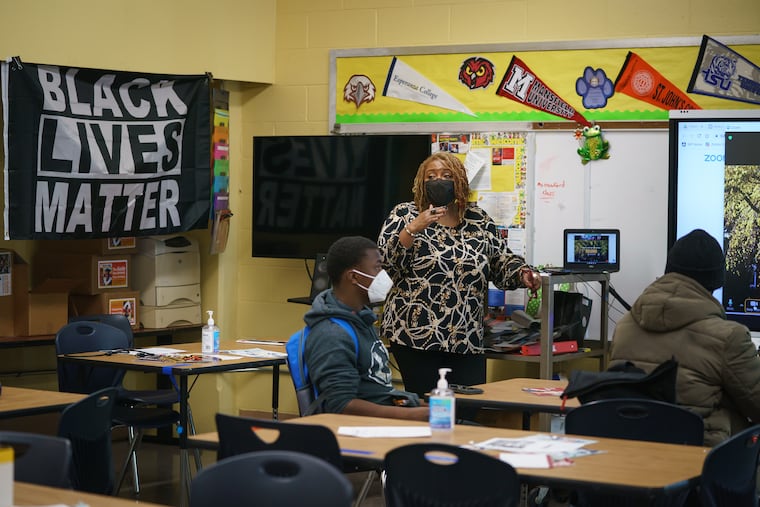High schools need more counselors to support new Pa. graduation requirements
The Class of 2023 will have more than one way to graduate. It's a lot to understand, and it is not an easy choice to make. They need more counselors to help.

Starting next year, high school students in the state of Pennsylvania will have different requirements for graduation, thanks to an act signed by Gov. Tom Wolf that provides different pathways to graduate.
Prior to this act, students had to pass all three state exams — Algebra I, Literature, and Biology — in order to graduate. When the old mandate was enacted in 2013, people called it an “unfunded mandate” — it increased the requirements for students to graduate without providing extra resources for schools to help students meet them.
The update to the requirements was designed, in part, to address those criticisms, as well as the concern that relying solely on state exams was not a fair requirement. Unfortunately, this update may only make the problem worse.
The new graduation standards that go into effect for the Class of 2023 provide options so that Pennsylvania kids have more than one way to graduate. Students can still rely on their scores on the three tests to graduate, but they can also:
Pass the three state exams.
Pass the three in-school courses associated with each exam (Algebra I, Literature, and Biology) and take an additional test (such as the SAT).
Pass the three school classes and pass rigorous career and technical standardized tests.
Pass the three main classes and create a career portfolio.
Super simple, right? Not really! It is a lot to understand, and it is not an easy choice to make. Each child and their path is different. This choice deserves time, effort, and a conversation (or a couple of conversations) with an expert who understands the student, their strengths, and the new options to graduate. That work will most likely fall to our teachers and school counselors, who are already overburdened and overworked.
» READ MORE: ‘I’m never going back’: Philly teachers on why there’s a surge in midyear resignations.
High standards of achievement in high schools are a good thing — in theory. But a key concept in education policy (which I’m learning as a student in the University of Pennsylvania’s master’s in education policy program) is that when you make a policy change, you need to consider all of the consequences. When the state raises standards, it needs to plan and account for the resources it takes to make these standards reachable.
Of course, we all want to raise the bar and watch students reach it. We want our students to have every opportunity possible; in Philadelphia, I know for a fact all of our students can reach the high standards we put in front of them. However, there is an equity issue staring us in the face. Philadelphia students will have to navigate this new act and its pathways with far less support than students in more properly funded districts.
“When the state raises standards, it needs to plan and account for the resources it takes to make these standards reachable.”
Many long-standing issues have been exacerbated by the pandemic, but a few things stick out, like the experiences of students in funded vs. underfunded schools. We already need more counselors to support our students’ social and emotional growth. In navigating the complicated new pathways to graduation, many students and families in underfunded schools will be left to navigate the changes on their own.
Simply put, we need more counselors in our high schools to help families and students navigate this new act. Currently, the 2022-23 budget in the School District of Philadelphia only allows one counselor for up to 649 students. More are available “for purchase,” but that is being left up to chance — in other words, whether students have the good fortune of having a principal who decides to hire more counselors. Our students’ futures should not be left up to chance.
We needed more counselors before the pandemic, we needed more counselors at the peak of the pandemic, and we surely need more counselors now.
Nicole Wyglendowski teaches special education for the School District of Philadelphia in North Philadelphia.